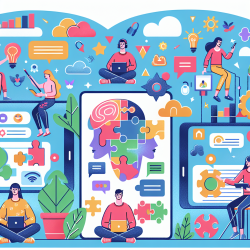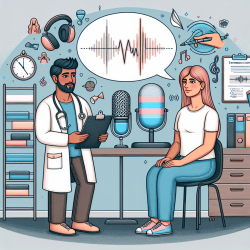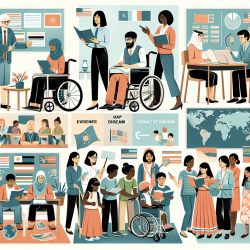In the ever-evolving field of mental health, continuous learning is crucial for practitioners aiming to provide the best care possible. Recent research has highlighted the potential of digital training programs to enhance knowledge-based competencies among non-specialists in delivering problem-solving psychological interventions. This blog post delves into these findings and offers insights on how practitioners can leverage digital training to boost their skills.
The Power of Digital Learning
Digital learning platforms have revolutionized education across various fields, including mental health. They offer scalable solutions to train a large number of individuals efficiently and effectively. The study titled "Developing knowledge-based psychotherapeutic competencies in non-specialist providers" explored the impact of digital training on non-specialist providers' competencies in delivering problem-solving interventions for adolescent mental health issues.
The Study at a Glance
The research involved 277 participants who were randomly assigned to two groups: one receiving self-guided digital training and the other receiving digital training with additional coaching support. The results were promising, showing a significant increase in competency scores from pre-training to post-training assessments.
- Self-Guided Training: Participants progressed through modules independently, accessing materials such as video lectures, quizzes, and readings.
- Coaching-Supported Training: In addition to digital materials, participants received personalized coaching sessions via phone calls to reinforce learning and address any challenges.
Key Findings
The study revealed several important outcomes:
- Increased Competency: Both training methods led to improved knowledge-based competencies, with greater gains observed in the coaching-supported group.
- Higher Engagement: Participants in the coaching arm showed higher engagement and completion rates compared to those in the self-guided group.
- Scalability: The use of non-specialist coaches highlights the scalability potential of this training model, making it accessible to a broader audience.
Implications for Practitioners
This study underscores the effectiveness of digital training programs in enhancing psychotherapeutic skills among non-specialists. For practitioners looking to improve their competencies, here are some actionable steps:
- Embrace Digital Learning: Explore available online courses and platforms that offer structured learning paths in mental health interventions.
- Seek Coaching Support: Consider programs that provide coaching or mentorship opportunities to reinforce learning and address specific challenges.
- Stay Updated: Regularly attend webinars, conferences, and workshops to stay informed about the latest advancements in mental health education.
The Future of Mental Health Education
The integration of digital technologies into mental health education is paving the way for more inclusive and accessible learning opportunities. As we continue to explore innovative approaches to training, it's essential for practitioners to remain open to new methods that enhance their skills and ultimately benefit their clients.
If you're interested in delving deeper into this research, you can read the original paper titled "Developing knowledge-based psychotherapeutic competencies in non-specialist providers: A pre-post study with a nested randomised controlled trial of a coach-supported versus self-guided digital training course for a problem-solving psychological intervention". This comprehensive study offers valuable insights into the future of psychotherapeutic education.










